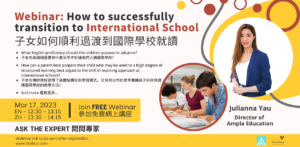Following Part 1, we will now discuss some not so obvious tips that will help you make that final decision.
University Course Handbooks
Now that you have a slightly better idea as to what appeals (or not) to you (see Part 1), a University Course Handbook will allow you to explore all the courses from A to Z and you will be surprised as to what’s available. All universities have a course handbook which provides all the information for every course they offer. It shows for each course, what are the admission requirements, the course structure and what you must achieve to complete the course.
Different universities will have different offerings so you should check out the handbooks from a range of universities to allow you to compare and contrast them. Additionally, you can access the handbook either online or fill out your postal address to get it delivered to you.

Career assessment
If you don’t have a general direction, there are a number of tools available (online and offline, free and paid) that aim to assess your personality type and recommend potentially suitable career options. For instance, the Myers-Briggs Type Indicator (MBTI) is one of the most popular ones, the Jung Typology Test and many more. Some websites offer these tests at a fee so do check them if you are interested. Alternatively, you can speak to an advisor at your school to see if they have any recommendations.
Don’t use any of these results as a ‘sign’ that you should pursue a particular degree, rather, you should use them as a reference only.
Talk to people
Looking at the subject description is one thing, actually studying for it is another. Try to talk to current students in your subject of interest so that they can give you an insider’s point of view – former graduates from your school, current students you meet on University Open Day – ask them for their contact details and explain nicely that you are hoping to find out more about the course. They are more than happy to help as they have been in your shoe before – the only thing I would mention is that they are probably very busy people, so be persistent. Don’t be discouraged if they do not get back to you – try again and find someone else. You can even try to find out the course coordinator so you can get both sides of the story.

Do you have any family members who did the same subject or something similar? Talk to them and they can give you invaluable advice, particularly those who are actively still working in the field: they have already completed the course PLUS remain in the industry and so will know about career opportunities, related subjects, reputation of universities, etc. Ask your family member to see if they have friends that could provide that perspective.
Talk to your parents or siblings – they are probably the people who know you best and can give you useful advice. They will be able to talk you through all the above steps and provide you with a different view on the matter.
Think ahead
Last but not least, consider the bigger picture – what is it that I want to achieve in life ultimately? Will subject A or B give me an advantage in reaching my goal? Are there many opportunities for me once I graduate? This is arguably the part that not all students are aware of but should be taken seriously. Do not be too short sighted and only think about your time at university studying the course, but also AFTER.
Hopefully these tips will help you make that final decision. Good luck!
To find out more about Ampla Education’s university application services, contact us at info@ampla-edu.com
________________________________________________________________________
______________________________________________________________
Educated at Badminton School, Kitty obtained a First Class Honours degree in Biomedical Engineering, followed by a MSc degree specialising in Medical Physics, both from Imperial College. Kitty has experience teaching students subjects such as Maths, Sciences, as well as educating young children Programming. As the former Departmental Representative of her degree, she also understands university admissions and is well placed to assist with school and university applications.
________________________________________________________________________
______________________________________________________________
© Ampla Education – Unauthorised use of this material without permission is strictly prohibited. Excerpts and links may be used, provided that full credit is given to Ampla Education.



















